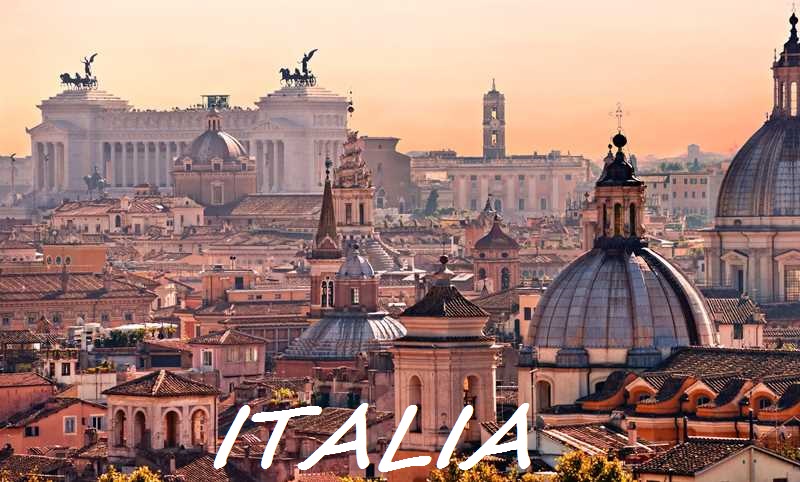Alessio Fratticcioli for Digital Journal
Two immigrants were gunned down and three others were seriously wounded. It happened on Tuesday, Dec. 13, in Florence, Italy. The gunman was 50-year-old Gianluca Casseri, close to ultra-right movement Casa Pound.
According to eyewitnesses, Casseri calmly walked up to a group of Senegalese street vendors and opened fire on the group. Two of the vendors were killed on the spot, the third left seriously wounded. The crime happened in broad daylight. The gunman then moved on to the city’s central market, where he shot and wounded two more vendors. When police arrived Casseri took his own life shooting himself in the throat.
A group of African immigrants immediately gathered in downtown Florence to protest against the killings and racism in Italy. “Don’t tell us he was a madman,” said one, “because if he was he would have killed whites as well as blacks”. Another one told the press: “It was a clear racist act, but when Africans or gypsies die you don’t care!” A few days before, a 500-strong lynch mob of Italian citizens threw petrol bombs on a Roma camp in Turin after a fake rape claim. Luckily, no victims were reported.
Florence is known as a bastion of the Italian Left. Apart from a few brief periods, the city has been governed by Communists, Socialists and other Left-wing parties since 1945. Today, the killer’s far-Right movement Casa Pound has thousands of fans. They consider Benito Mussolini a “point of reference.” According to a survey, 40% of Casa Pound’s supporters regard violence as “acceptable to achieve the right outcome.”
After the episodes of Turin and Florence a few independent voices raised the subject of media and political responsibilities in triggering the xenophobia which fuels violence and ultra-right movements, but mainstream media and politicians played down the significance of the episodes. Matteo Renzi, mayor of Florence, in denouncing the killings stated that “Florence is not a racist city [because] it was just a lone killer.”
In a report issued earlier this year, Human Rights Watch (HRW) documented plenty of racist crimes committed in Italy in recent years, including arson, verbal or physical intimidation, and killings of non-Italian workers or Italian citizens of foreign origins. Abdoul Guiebre, an Italian citizen born in Burkina Faso, was bludgeoned to death in Milan in September 2008 because it was thought he stole biscuits. In a matter of weeks a number of xenophobic attacks followed. A Chinese man, Tong Hongsheng, was beaten up while waiting for a bus in Rome; a Somali woman, Amina Sheikh Said, was strip-searched and interrogated for hours at Ciampino Airport in Rome for no clear reasons; six African immigrants were gunned down by the Neapolitan Mafia. In 2009 an Indian man nearby Rome was beaten, doused with gasoline and set on fire. Romanians have been set on fire too. Countless attacks have been carried out against Roma camps.
The report concluded that responsibilities for the huge escalation in the number of racist assaults in recent years lay with the former government led by billionaire Silvio Berlusconi (2008-2011). “The government spends far more energy blaming migrants and Roma for Italy’s problems than it does on efforts to stop violent attacks on them,” reads the report. “The government’s alarmist talk of an invasion of ‘biblical proportions’ from North Africa is just the latest example of irresponsible rhetoric. Officials should be protecting migrants and Roma from attack.”
Apart from the former government, the report believes the climate of intolerance has been fuelled also by the centre-left Democrat Party. Shortly after the founding of this party in 2007, former leader Walter Veltroni urged the government, then led by Romano Prodi, to pass a new act (decreto di espulsione — deportation decree) permitting the authorities to deport European citizens who represent “a threat to public security.” The act was mostly aimed against Roma of Romanian nationality, perceived to be a major threat to public order by media and public. The decree was finally signed into law in November 2007 by the Giorgio Napolitano, Italian President of the Republic. As mayor of Rome, Veltroni promoted similar pro-deportation campaigns, claiming that Roma were guilty of 75 percent of the petty crimes committed in the city. Eventually, the Democrats lost the capital to former neo-fascist politician Gianni Alemanno, now belonging to Berlusconi’s party Popolo della Libertà (People of Freedom, PdL). Alemanno proudly wears a necklace with a Celtic cross, symbol of European neo-fascism.
By now killings and violence against immigrants, blacks, Roma and other minorities have been taking place across the country for years. The events are already a shocking blow to a country where tourism is one of the few growing and profitable industrial sectors in an otherwise sluggish economy. Indeed, also Italy’s supposed ancient tradition of Roman Catholic tolerance is hitting up against a reality of economic uncertainty and widespread anti-immigrant feelings. An article appeared on the magazine [i]L’Espresso[/i] on Friday, December 16th casts light on the unmistakable racism and xenophobia professed by supporters of the third largest political party, the Lega Nord (Northern League, LN), which managed to reach a peak of 10,2% of votes in 2009 European Parliament elections. LN activist Eros Domenico admitted to be pleased with the double murder in Florence: “that’s good, we’ll have two mouths less to feed”. Giovanna, a “housewife, wife and mother”, proposed a final solution for the immigrants’ sons too:”a flame thrower, let’s burn those shits”. Remo, a doctor from a town nearby Milan, declared that immigrants don’t smell pleasantly: “when they come to me they stink so badly.” Anna Paola answered:”that’s because they don’t wash themselves after making love. And let’s not talk of their natural stink, it’s unbearable… I’ve heard on TV their sex has an unbearable smell, indelible, it doesn’t go away even if you wash it with a special soap.”
Such reportage demonstrated how superficial images of a welcoming Italy clash with a reality where immigrants are frequently considered impossible to integrate, possible criminals and occasionally religious extremists. The cases of Florence and Turin may be described as unique and exceptional; nevertheless there are deeper implications which should be taken into account to understand the role which xenophobia and racism play out in contemporary Italy.
First, there is the fact of violence and murders themselves. Although carried out by “lone” individuals or small groups, they receive a wider acceptance among the public and they instigate emulators. Therefore, occasional violence is just the tip of a dark iceberg.
Second, anti-Semitic rhetoric remains a concern in Italy, but the favorite targets of today’s xenophobes and racists are not Jews but people of a different skin color, Roma and those who might be associated with Islam. The recent massacre in Norway was inspired by a similar hatred. We may be at the beginning of a continent-wide right-wing terrorist threat.
Third, many Italians fail to perceive immigrants as belonging to Italian society. Why is that? One reason stands out while observing the mainstream media, where cases involving non-Italians tend to be trivialized. In addition, as an unwritten rule, Italian citizens are always named, while non-Italians tend to be categorized according to ethnicity, nationality or occupation: “Roma”, “Senegalese”, “Chinese”, “street hawkers.” Libero, a newspaper controlled by Berlusconi, defined the victims in Florence “vu cumprà,” a racist expression which imitates the pronunciation of African immigrants of “vuoi comprare” (do you want to buy) and ended up being used as a pejorative to refer to foreign street hawkers in general. Depriving a person of her proper name and labeling her with a collective appellative equals depriving her of her individuality. It is the first step for dehumanizing someone, and when one is not considered human, or is seen as less human than “us”, than it is easier to treat her in such ways we would not employ for fully human individuals.
In Italy, fundamental changes are needed. Until the population at large starts recognizing individuals marked by ethnic, religious or skin color difference as belonging to the Italian community, everyday xenophobia and racism will provide the lymph for incomprehension, exclusion and violence.

















 Reddit
Reddit Twitter
Twitter Facebook
Facebook RSS
RSS